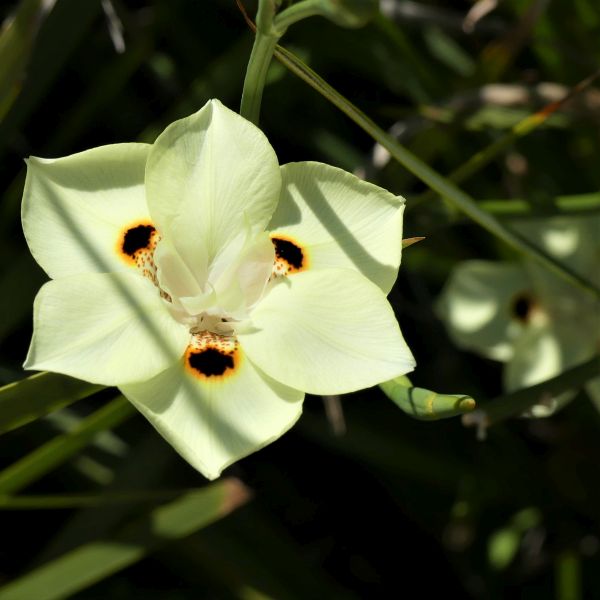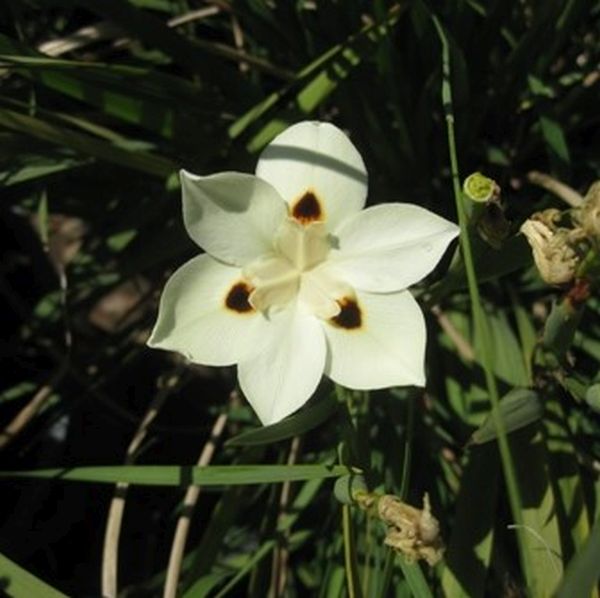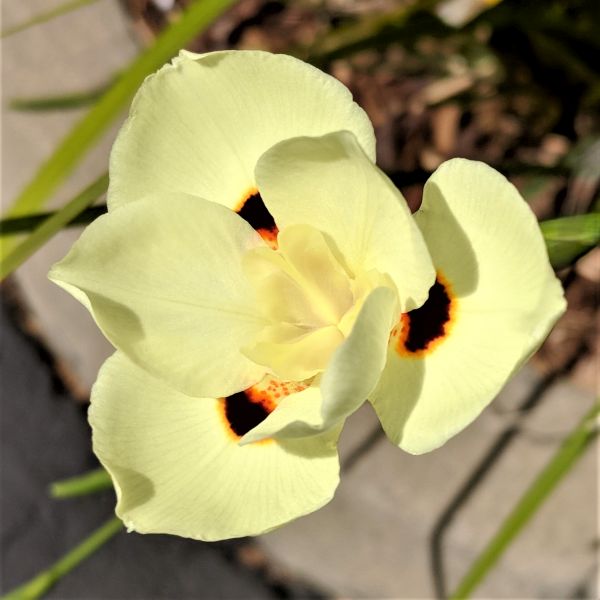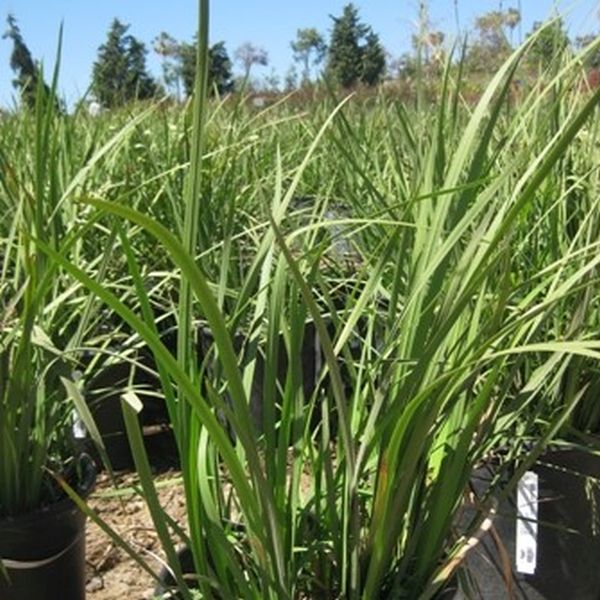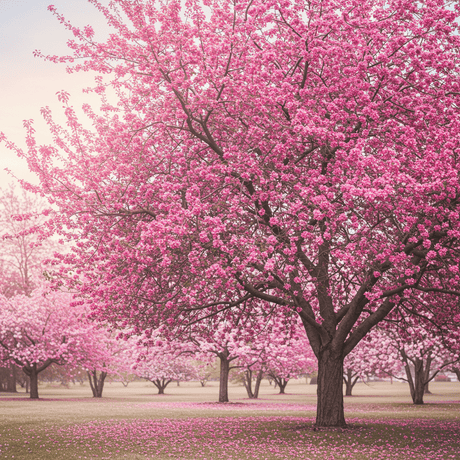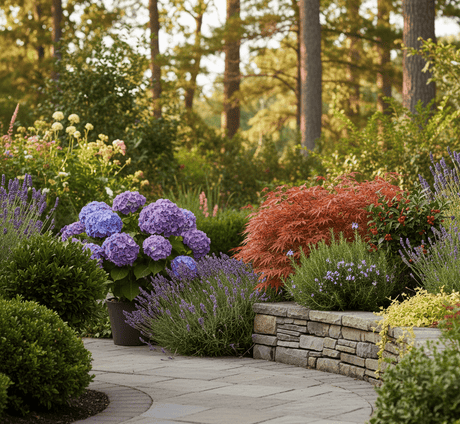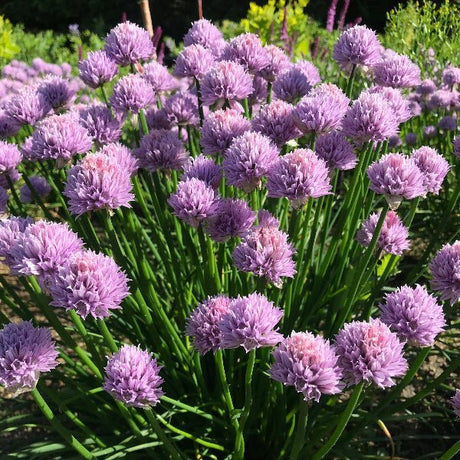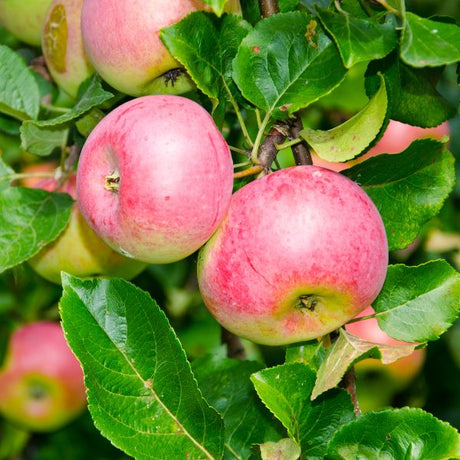Fortnight Lily
Dietes bicolor
- Stay Protected with Plant Sentry ™
Fortnight Lily - #5 Container is backordered and will ship as soon as it is back in stock.
Plant Sentry™
Plant Sentry™

Plant Sentry™ Protected
Your order is protected by our compliance system that:
- Prevents restricted plants from shipping to your state
- Ensures plants meet your state's agricultural requirements
- Protects gardens from invasive pests and diseases
Delivery and Shipping
Delivery and Shipping
Delivery and Shipping
Fast, Safe Plant Delivery
Ships in 3-4 business days • Tracking provided • Weather protected
| Under $50 | $9.99 |
| $50 - $99.99 | $14.99 |
| $100 - $149.99 | $16.99 |
| $150 - $198.99 | $24.99 |
| $199+ | FREE |
✓ Zone-specific timing • ✓ Professional packaging • ✓ Health guarantee
Understanding Plant Options
Nature Hills offers plants in two main formats:
- Container Plants: Grown in pots with soil, sized by container volume and plant age
- Bare Root Plants: Dormant plants without soil, sized by height measurements
Container Plant Sizes
Container sizes indicate plant age and growing capacity rather than liquid volume equivalents. Our containers follow industry-standard nursery "trade gallon" specifications, which differ from standard liquid gallon measurements.
Young Plants (6 months to 18 months old)
| Container Size | Actual Volume | Metric Equivalent |
|---|---|---|
| 2" x 2" x 3" | 0.18 - 0.21 dry quarts | 0.20 - 0.23 dry liters |
| 4" Container | 0.31 - 0.87 dry quarts | 0.35 - 0.96 dry liters |
| 4.5" Container | 0.65 dry quarts | 0.72 dry liters |
| 6" Container | 1.4 dry quarts | 1.59 dry liters |
| 1 Quart | 1 dry quart | 1.1 dry liters |
| 5.5" Container | 1.89 dry quarts | 2.08 dry liters |
Established Plants (18 months to 2.5 years old)
| Container Size | Actual Volume | Metric Equivalent |
|---|---|---|
| 2 Quart | 2 dry quarts | 2.2 dry liters |
| #1 Container | 2.26 - 3.73 dry quarts | 2.49 - 4.11 dry liters |
| 5" x 5" x 12" | 3.5 - 4.3 dry quarts | 3.85 - 4.74 dry liters |
Mature Plants (2-4 years old)
| Container Size | Actual Volume | Metric Equivalent |
|---|---|---|
| #2 Container | 1.19 - 1.76 dry gallons | 5.24 - 7.75 dry liters |
| #3 Container | 2.15 - 2.76 dry gallons | 8.14 - 12.16 dry liters |
Large Plants (3-5 years old)
| Container Size | Actual Volume | Metric Equivalent |
|---|---|---|
| #5 Container | 2.92 - 4.62 dry gallons | 12.86 - 20.35 dry liters |
| #6 Container | 5.25 - 6.01 dry gallons | 23.12 - 26.42 dry liters |
| #7 Container | 5.98 - 6.53 dry gallons | 26.34 - 28.76 dry liters |
Bare Root Plants
Bare root plants are sold by height from the root system to the top of the plant. Plants may exceed minimum height requirements.
Common Sizes:
- Trees: 1 foot, 2 feet, 3 feet, 4 feet, 5 feet, 6 feet
- Shrubs & Perennials: 1 foot, 18 inches, 2 feet
Important Notes
Container Volume Specifications
- Trade Gallon Standard: Our containers follow industry-standard "trade gallon" specifications established by the American National Standards Institute (ANSI Z60.1) for nursery stock
- Volume Variations: Actual soil volume may vary due to plant root systems and growing medium settlement
- Age Indicators: Container size primarily indicates plant age and maturity rather than liquid volume equivalents
Growing Conditions
- Plant size can vary based on variety and growing conditions
- Container size helps indicate plant maturity and establishment level
- Larger containers generally mean more established root systems and faster landscape establishment
Seasonal Availability
- Bare root plants are available seasonally when dormant
- Container plants are available throughout the growing season
- Specific varieties may have limited availability in certain sizes
Questions?
For questions about specific plant sizes or availability, please contact our plant experts who can help you choose the right size for your landscape needs.
Plant Highlights
Fortnight Lily highlights at a glance!
-
Botanical Name
-
Brand
-
Growing Zones9, 10, 11
-
Growth RateModerate
-
Mature Height
-
Mature Width
-
Leaf Color
-
Flower Color
-
Fall Color
-
Pollinator FriendlyYes
-
Bloom PeriodEarly Summer, Late Summer, Early Fall, Late Fall
Characteristics
Where To Plant
When To Prune
- Early Spring
Water & Moisture Needs
- Low
Sunlight Needs
Soil Needs
- Highly Adaptable
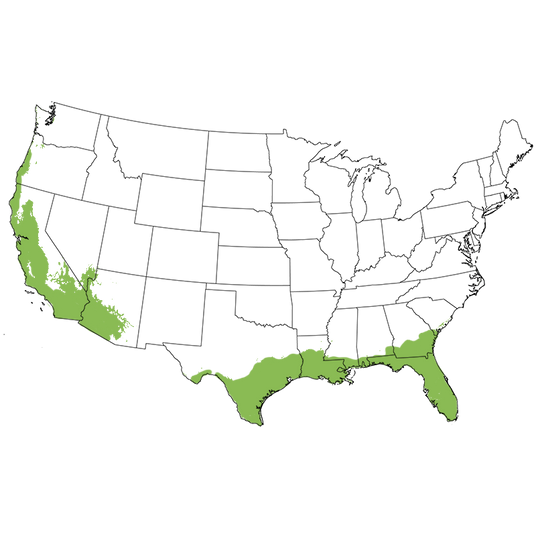
Growing Zones 9-11
Butterfly-Like Fortnight Lily Glows in Every Garden
The Fortnight Lily (Dietes bicolor), also known as the African iris or butterfly iris, is one of Ma Nature's clever little optical illusions! Its pale yellow flowers with rich maroon spots look like fluttering butterflies hovering above a sea of green, grass-like leaves. Native to Southern Africa, this evergreen perennial flower blooms every few weeks (hence the name Fortnight), especially in warm USDA hardiness zones 9 through 11.
Its upright, sword-like foliage and strappy leaves create a tidy fan-shaped clump, offering year-round garden interest even when not in bloom. Each flower is a soft, buttery yellow with three chocolate-maroon blotches near the base!
Despite its delicate appearance, this hardy herbaceous perennial is tough as nails, drought tolerant, a great fire-resistant landscaping plant, and adaptable to both desert heat and coastal breezes! This makes it an excellent choice for low-maintenance gardening and sustainable landscape design.
>>Jump to Planting & Care Instructions
Plant Characteristics and Identification
Its upright, sword-like foliage and strappy leaves create a tidy fan-shaped clump, offering year-round garden interest even when not in bloom. Each flower is a soft, buttery yellow with three chocolate-maroon blotches near the base! Acting like a beacon for pollinator-friendly plants and darling additions to cut flower gardens, these cheerful yellow perennial flowers are spot on for your full sun garden!
Botanical Classification:
- Scientific name: Dietes bicolor
- Common names: Fortnight lily, African iris, butterfly iris, yellow wild iris
- Plant family: Iridaceae (Iris family)
- Plant type: Evergreen clumping perennial
- Mature size: 2-3 feet tall and wide
Key Features For Garden Planning
- Soft buttercream yellow flowers with distinctive maroon eye-spots
- Continuous blooming perennial: blooms spring through fall in flushes every few weeks
- Evergreen clumping perennial with architectural strappy-leaved form
- Deer-resistant plants
- Versatile soil tolerance: Thrives in poor, salty, or wet soils, as well as dry, xeric landscaping, and rocky sites equally well
- Heat-tolerant perennials: Hardy in USDA Planting Zones 9-11. Excels in hot climate gardening and high humidity
Landscaping Uses
Acting like a beacon for pollinator-friendly plants and darling additions to cut flower gardens, these cheerful yellow perennial flowers are spot on for your full sun garden!
These flowers seem to glow during twilight hours, making them perfect for a Moon Garden. While each bloom only lasts a day, the plant continuously produces new ones from spring to fall. Fortnight Lily has long been a go-to plant for sustainable gardens. It thrives in both xeric designs and boggy spots alike!
Fortnight Lily is also a welcome friend to pollinators and fire-wise landscaping plans. Standing 2-3 feet tall and wide, Fortnight Lily is an upright clumping perennial perfect for sunny spots that need subtle drama and long-lasting color.
- Mass along sunny borders or dry stream beds
- Highlight ponds, fountains, and rain gardens
- Use in coastal landscaping and inland firewise plantings
- Add texture to rock gardens
- Accent cottage gardens with glowing twilight color
- Grow in large porch and patio container gardens or balcony pots
Care and Maintenance
This cousin of the Iris is deer-resistant, low-maintenance, and handles salty spray, compacted soils, and even an occasional hard frost. Fortnight Lily is an herbaceous perennial that thrives in a wide range of conditions, from boggy to bone-dry. It’s sun-loving, evergreen in mild zones, and tough enough to survive light frost with grace.
- Planting Time: In spring, when the soil is workable, or in the fall
- Sun Needs: Full sun to part sun (blooms best in full sun)
- Soil Needs: Tolerates draining clay, sand, or loam; handles both wet and dry conditions; good drainage preferred but not required!
- Moisture Needs: Water to establish, then infrequent deep watering
- Mulch: Apply a 3-4 inch layer of arborist mulch to retain moisture and prevent weeds
- Fertilization Needs: Not heavy feeders; compost or balanced slow-release fertilizer in the spring
- Pruning Info: Trim spent flower stalks and damaged foliage as needed
- Special Needs/Perks/For Success:
- Handles drought, coastal salt, wet soil, and compacted clay
- Deer and rabbit resistant
- Tolerates a wide pH range
- Extremely low maintenance once established
- Division Info: Divide every 3-5 years to rejuvenate and multiply. Remove older leaves to refresh the appearance
Let These "Flutter-Lilies" Light Up Your Landscape
Add some fluttery flair to your yard with the butterfly-like blooms of Fortnight Lily. From blazing sun to soggy spots, few plants can keep their cool (and keep blooming!) the way Dietes bicolor does. Whether you're growing for beauty, for resilience, or for fire prevention, this perennial earns its keep year after year.
Buy now, and Nature Hills will ship at the appropriate planting time for your growing zone.
Frequently Asked Questions
Do Fortnight Lilies rebloom?
Yes! Fortnight Lilies bloom in flushes every couple of weeks from spring through fall.
Are Fortnight Lilies drought-tolerant?
Yes, once established, they are extremely drought-tolerant but also grow well in moist or boggy conditions.
Do Fortnight Lilies attract pollinators?
Yes, bees and other pollinators are drawn to the bright blooms.
Are Fortnight Lilies invasive?
No, they are clump-forming and well-behaved in the landscape, though they may need dividing every few years.
Can Fortnight Lilies survive frost?
Yes, they tolerate occasional hard frosts, especially in Zone 8 and up, but may benefit from protection in colder regions.
Can I grow Fortnight Lilies in containers?
Absolutely! Use a large container with drainage, and enjoy these beauties on your balcony or patio.
Do I need to deadhead Fortnight Lilies?
While not necessary, deadheading improves appearance and tidiness.
Why Order From Nature Hills Nursery?
Nature Hills Nursery is committed to bringing the highest-quality plants to your door. Join thousands of happy customers and get all your planting needs at Nature Hills! We guarantee our plants for their first year! Check out lifelong support and landscaping ideas in our #ProPlantTips Garden Blog!
Drought Tolerant, Fire-Resistant and Beautiful
The Dietes bicolor, going by the common name Fortnight Lily, for many years was botanically incorrectly named Moraea bicolor. Although debate began over the true identity in the 1840s, the distinguishing separation was not made until the last part of the 1800s.
In 1866, Friedrich Wilhelm Klatt classified the Moraea as Dieties, the distinguishing fact being that the plants of the Moraea genre grow from a corm, whereas the Dieties all grow from rhizomes. This required a name change, but both names are associated with the plants still today.
Dieties bicolor, a native of South Africa, was first described as a part of the garden of the Comte de Vandes at Bayswater, England, in 1831. They are known to grow wild along the Kap River, Port Alfred, in the Eastern Cape in South Africa. A famous natural Reserve, the Kap River is home to many unique varieties of plants and animals.
Molecular analysis has determined Moraea bicolor to be the most primitive of the 6 species of Dietes that are known.
Adapted to many climates and soil types, the Moraea bicolor requires little water once established. It is recommended for drought-tolerant or xeriscape plantings, as well as container growing. It is considered a LOW water user by the California Department of Water Resources, Water Use Classification of Landscape Species (WUCOLS) list, requiring little water after being established.
Dieties bicolor is on all lists as a fire-resistant plant and should be considered for your defensible space planting in all fire-wise landscapes.

